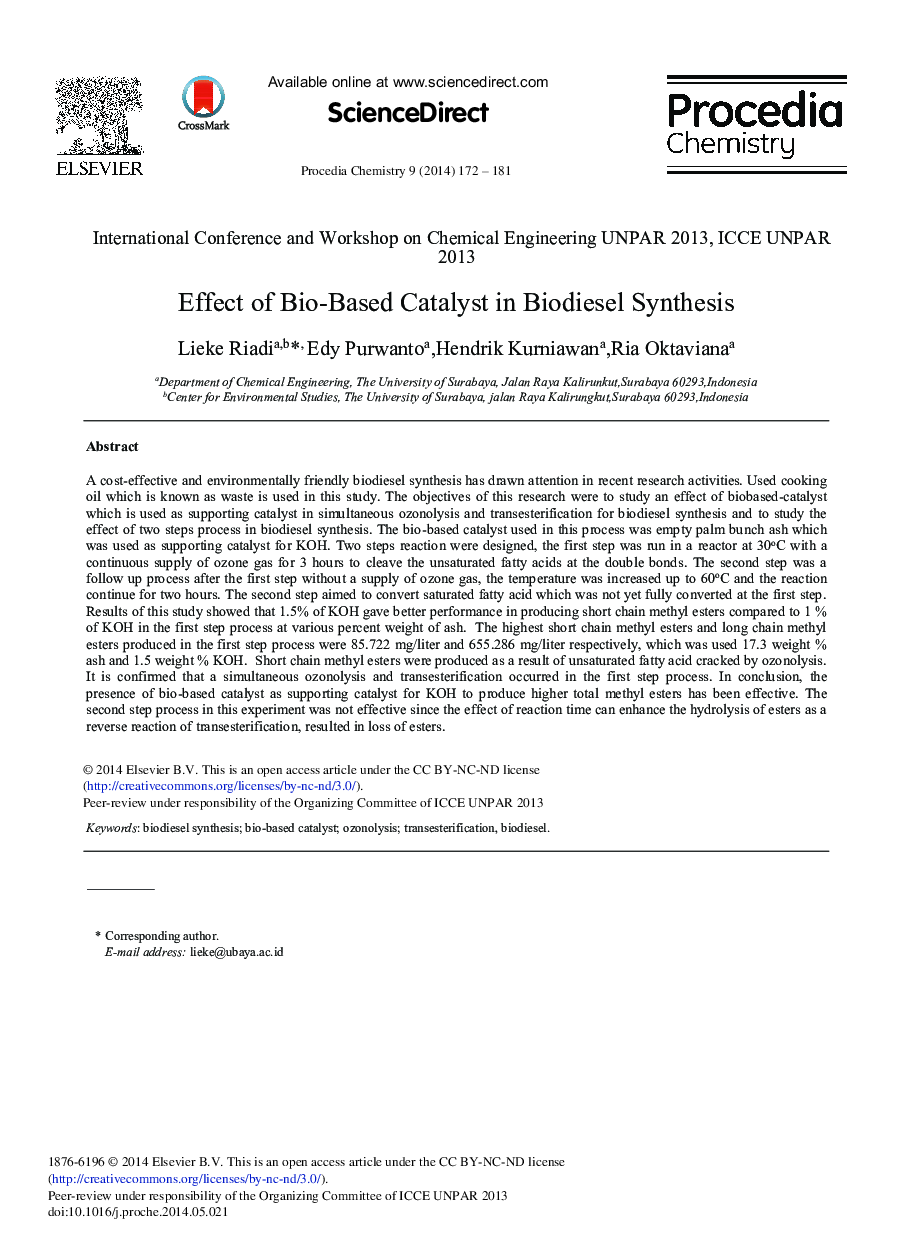| کد مقاله | کد نشریه | سال انتشار | مقاله انگلیسی | نسخه تمام متن |
|---|---|---|---|---|
| 240029 | 466243 | 2014 | 10 صفحه PDF | دانلود رایگان |
A cost-effective and environmentally friendly biodiesel synthesis has drawn attention in recent research activities. Used cooking oil which is known as waste is used in this study. The objectives of this research were to study an effect of biobased-catalyst which is used as supporting catalyst in simultaneous ozonolysis and transesterification for biodiesel synthesis and to study the effect of two steps process in biodiesel synthesis. The bio-based catalyst used in this process was empty palm bunch ash which was used as supporting catalyst for KOH. Two steps reaction were designed, the first step was run in a reactor at 30 °C with a continuous supply of ozone gas for 3 hours to cleave the unsaturated fatty acids at the double bonds. The second step was a follow up process after the first step without a supply of ozone gas, the temperature was increased up to 60 °C and the reaction continue for two hours. The second step aimed to convert saturated fatty acid which was not yet fully converted at the first step. Results of this study showed that 1.5% of KOH gave better performance in producing short chain methyl esters compared to 1% of KOH in the first step process at various percent weight of ash. The highest short chain methyl esters and long chain methyl esters produced in the first step process were 85.722 mg/liter and 655.286 mg/liter respectively, which was used 17.3 weight % ash and 1.5 weight % KOH. Short chain methyl esters were produced as a result of unsaturated fatty acid cracked by ozonolysis. It is confirmed that a simultaneous ozonolysis and transesterification occurred in the first step process. In conclusion, the presence of bio-based catalyst as supporting catalyst for KOH to produce higher total methyl esters has been effective. The second step process in this experiment was not effective since the effect of reaction time can enhance the hydrolysis of esters as a reverse reaction of transesterification, resulted in loss of esters.
Journal: Procedia Chemistry - Volume 9, 2014, Pages 172-181
